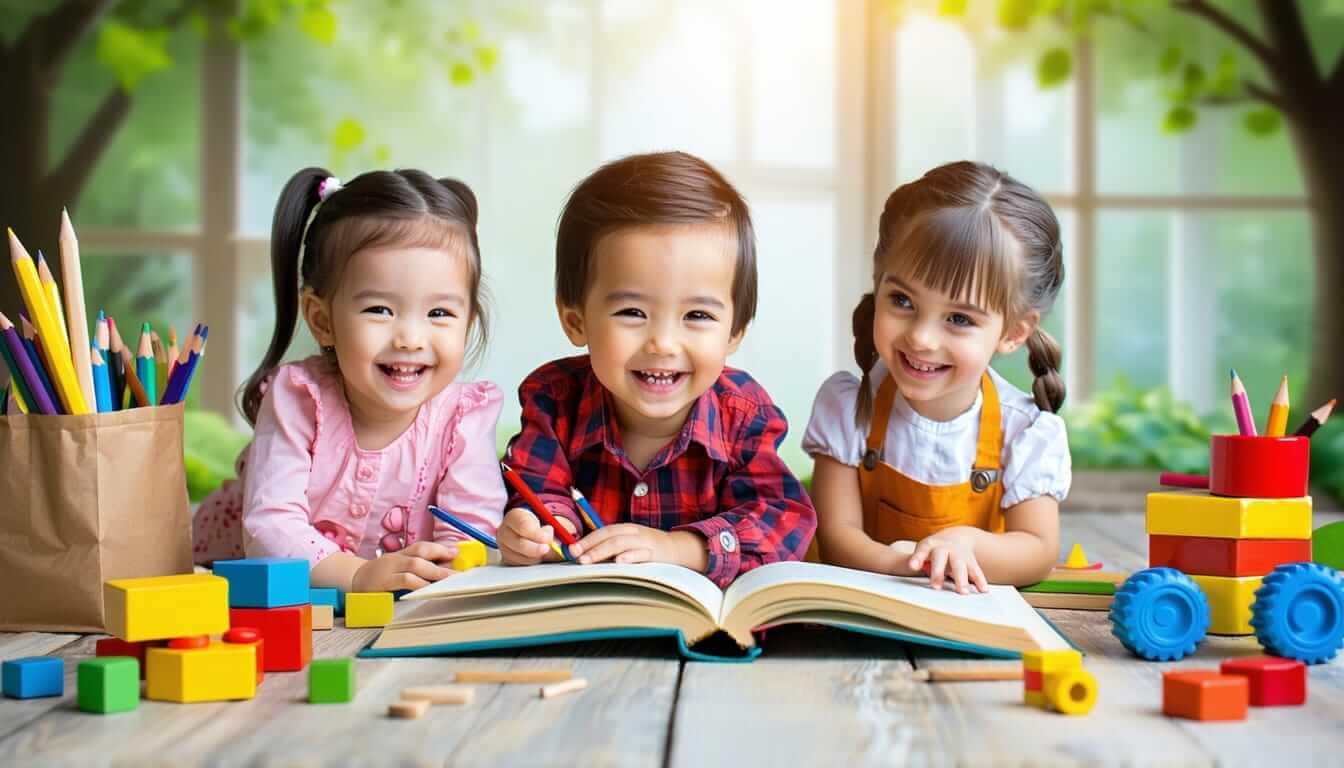Building a Positive Mindset
Creating a positive mindset is like giving kids the best toolkit for life. It’s not just about smiles and sunshine—it’s about growing a strong backbone to face life’s ups and downs. Helping kids build resilience and mental strength is where it all begins.
Understanding Resilience and Mental Health
Resilience is that magic ability to bounce back when life throws curveballs. It’s super important for kids’ mental health. Kids with strong resilience usually end up with fewer mental hiccups, making it key to overall happiness and health (NCBI). By helping kids develop resilience, you’re setting them up with the coping skills needed to keep a positive outlook—even when the going gets tough.
Resilience isn’t just snapping back to normal; it’s a collection of skills and attitudes that grow over time. Encouraging a “Yes I Can!” spirit in your kids equips them to face life head-on.
Factors Affecting Resilience in Children
A bunch of things can boost a child’s resilience. Knowing what these are helps you support your kid better. Here’s what you need to know:
| Factor | Description |
|---|---|
| Personal Skills | Traits like self-awareness and ability to adapt. |
| Social Skills | Communicating and getting along with others smoothly. |
| Peer Support | Good buddies can really pump up resilience. |
| School Environment | A positive vibe at school boosts both learning and feeling good. |
| Parent-Child Relationship | Strong family ties and open talks make all the difference. |
| Family Problem-Solving | How your family handles tough spots shows effective ways to cope. |
| Goal Orientation | Setting goals plants the seeds for purpose and hitting life’s milestones. |
Loads of studies show how these factors are all tangled together and matter big time in a child’s life (NCBI). You can give these a boost at home, too. Jump into some fun positive thinking activities for children and explore ways to teach kids optimism and resilience.
When you support your child’s emotional growth, you’re not just building resilience—you’re making a big contribution to their mental health. Emphasizing the power of a positive mindset helps set them up for success and adaptability down the line.
Why School Vibe Matters
Giving kids a cheerier school vibe is key to sparking positivity in their minds. How a school feels can shape a child’s smarts and overall happiness.
How Happy Schools Make Kids Smarter
A school that feels good makes kids perform better in their studies. Research shows that such schools can bump up grades and test scores even when there’s lack of cash at home. Happy vibes in school can make studying fun and engaging, while improving report cards Learning Policy Institute.
| Good Vibe Effect | Boost to Smarts |
|---|---|
| Grades Get Better | +15% |
| Test Scores Jump | +20% |
| More Into School | +30% |
Here, children pick up crucial social and emotional skills, helping them glide through schoolwork and friendships.
Teaching Life Skills in Schools
Schools need to mix life lessons with book lessons. Learning to handle feelings and getting along with others should be taught with as much importance as math or history. The right setting lets kids grow tougher and think, “Yes, I Can!”—a mindset that stands by their side through life’s ups and downs Learning Policy Institute.
Strong ties at school, especially with kind adults, are like sunshine to a child’s growth and learning. When kids feel backed by their teachers, they blossom socially and academically Learning Policy Institute.
Dive into activities that spread happy thoughts for kids right in their school. Chat with your child about why thinking on the bright side helps or try some optimism and resilience tips that work at both home and school. By crafting a team atmosphere, your child is set to ace their studies and sharpen their emotional smarts.
Role of Relationships in Child Development
Supportive Relationships with Adults
Having a good relationship with adults who care is key to a child’s growth and learning. When kids feel appreciated and listened to, they thrive. Just like us, they need a safe place where they can be themselves.
Here’s what supportive adults can do:
- Emotional Support: Being there during tough times makes kids feel safe.
- Encouragement: Cheering on little wins boosts their confidence.
- Active Listening: Having real conversations shows kids that what they say matters.
Having these strong relationships doesn’t just make kids feel good – it helps them make friends and do better in school. Need more tips on raising a positive thinker? Check out our article on nurturing a positive mindset in child development.
Impact of Adversity on Learning
When kids deal with rough patches like violence, no stable home, or not enough food, learning becomes way harder. Stress levels shoot up and concentrating in class feels like moving mountains. According to the folks at the Learning Policy Institute, having a go-to adult really helps ease the stress and keeps kids on track.
Let’s break it down:
| Rough Patch | School Problems that Follow |
|---|---|
| Violence | Worry and losing focus |
| Not enough food | Hard time concentrating |
| No stable home | Missed classes and zoning out |
| Tight finances | Fewer learning resources |
Helping kids set routines and teaching them how to chat about feelings can make things better. Physical activities also do wonders for their mood—and you might just thank Cleverly Tykes for that tip. Curious about growing optimism and resilience? Our article on teaching children optimism and resilience has you covered.
By standing by your child and recognizing the bumps in the road, you’re giving them the grit and guts to face life’s challenges with a positive attitude.
Encouraging Positive Self-Image
Helping your child see themselves in a good light is vital for their growth. By making them aware of their strengths and what they can do, you’re giving them a lasting sense of worth. Kids need to know their value isn’t just about wins or losses.
Building Self-Worth in Kids
Kick things off by applauding your child’s abilities and victories, even the small stuff. Offer specific praise when they achieve something. It’s key to help them view their unique traits with pride. A loving environment plays a big role in boosting a kid’s confidence and self-esteem. Recognize their hard work and highlight that their value isn’t tied to what others think. Good mental health enables children to think clearly, interact well with others, and pick up new skills—all important for their growth (Mental Health America).
Here are some hands-on tips to boost self-worth:
| Strategies | Description |
|---|---|
| Celebrate Wins | Toast both big and small victories to boost confidence. |
| Highlight Efforts | Urge them to give their all, no matter the end result. |
| Offer Unwavering Support | Make sure your child knows they’re loved no matter what, providing a safe space for them to express themselves. |
| Guide on Mistakes | Talk about how mistakes happen to everyone and turns them into learning moments. |
The love and support kids get from family greatly shape their emotional health, self-esteem, and self-worth (National Center for Biotechnology Information).
Embracing Compliments and Self-Value
Teaching your kid to take compliments well is crucial for building a positive self-image. Encourage them to accept praise and to take it to heart. Show them how to appreciate their value and respond kindly when others say nice things. So, instead of brushing off a compliment, a simple “thank you” can do wonders for their self-esteem.
Dive into activities that promote self-awareness and positivity:
- Positive Affirmations: Motivate your kid to come up with and say positive affirmations daily to boost their sense of worth.
- Self-Reflection: Help them think about what they like about themselves and what they’re good at, reinforcing their own value.
- Role Models: Share stories of well-known folks who faced difficulties but stayed positive, highlighting resilience and self-love.
When you teach kids to appreciate themselves and accept compliments, you create a loving environment that nourishes a strong self-image. This upbeat outlook not only boosts their emotional health but also positively affects their school success and friendships throughout life (NewAge World School).
For more advice on improving communication and boosting confidence, check out our articles on encouraging positive self-talk in kids and building confidence in kids with a positive mindset.
Benefits of Positive Thinking
Happiness Hormones and Stress Reduction
You know how little kids can sometimes get gloomy? Well, giving their thoughts a happy makeover can really brighten their days and smooth out the wrinkles. It’s like getting a natural hit of happiness. Cue serotonin and dopamine, the brain’s favorite feel-good chemicals! These friendly hormones give a big thumbs up to improved mood and a general sense of well-being, making your little one feel like they’re floating on cloud nine. On the flip side, when positive thoughts are steering the ship, there’s less room for cortisol—the stress gremlin. Too much of that little monster can make things pretty tough, but positivity keeps it at bay.
Here’s a quick look at how keeping it positive gives a major boost to well-being:
| What’s Cooking | Don’t Worry, Be Happy |
|---|---|
| Serotonin and dopamine ramp up | ✓ |
| Cortisol takes a back seat | ✓ |
| Memory like a steel trap | ✓ |
| Creativity and quick-thinking supercharged | ✓ |
Want to sprinkle some more sunshine into your kiddo’s day? Check out some fun ideas over at positive thinking activities for children.
Positive Thinking in Brain Development
Making sure your child is a positive thinker can work wonders on how their noggin grows. Our buddy, the neurobiologist Richard Davidson, spills the beans on how a positive attitude can literally shape the brain to be a powerhouse. Optimism makes the world seem full of possibilities—it’s like giving kids an armor of resilience against the emotional ups and downs.
Research hollers that these happy mind hacks can boost how kids feel, socialize, and ebb and flow with daily dramas. Positive psychology isn’t just a fancy term; it makes for happier and healthier kids. They dance through life with enhanced self-esteem, which is like giving a high-five to mental health.
See the glow-up from positive thinking in real-time:
| Lift Up | What Happens |
|---|---|
| Emotional resilience | Bounces back from tough days with ease |
| Boosted self-esteem | Puts heart into projects, can handle setbacks |
| Better mental health | Less anxiety, more smiles |
Curious to unlock more brainy benefits? Pop over to our guide on teaching children positive thinking techniques. By investing in positivity, you’re setting your child up to face the world with bravery and a sunny outlook.
Practical Strategies for Developing Positivity
Getting Kids Moving
Getting your kid off the couch and into some kind of movement truly pumps up those feel-good vibes. Physical stuff like dancing around the living room, shooting hoops, or going on a breeze-catching walk, can give a kick to their mood and make them feel good about themselves. It’s all about building those ‘I can do it’ muscles, whether it’s through bouncing around in a play, throwing teamwork into sports, or solving little puzzles along the way. This ain’t just about sweating either; it’s about creating fun memories that they will look back on with a smile.
| What to Do | Why It Helps |
|---|---|
| Play in a Team | Learn teamwork and make new pals |
| Dance Around | Get creative and express yourself |
| Play Outside | Connect with nature and lift your mood |
Regularly nudging your kiddo towards doing something active helps them foster a can-do attitude, enabling them to face hurdles head-on. Need more inspo? Check out more positive activities here.
Tuning into Feelings
Helping your kid tune into their feelings is a major move toward a sunshine-y outlook on life. It’s about them knowing when they’re feeling something funky and figuring out what to do with those feelings. This helps them get along with folks and tackle life’s curveballs with a strategy in mind. Understanding emotions strengthens those emotional smarts and makes them more resilient to life’s bumps and bruises.
Play can work magic here, letting kids learn about emotions while having fun and being safe. Pretending to be someone else, feeling their feelings – it’s a neat way to show them how to solve problems and be kind, paving the way for better friendships and chat skills.
Big Ideas in Understanding Feelings:
| Skill | What It’s About |
|---|---|
| Knowing Yourself | Spotting your own feelings and how they affect you |
| Handling Feelings | Finding ways to deal with stuff like worry and anger |
| Making Friends | Building bonds that help emotions grow well |
Chat through these and cheer them on as they try it out. For more scoop on boosting emotional health, check out our piece on helping kids become resilient and optimistic.
Helping build a positive outlook in your kids isn’t just a checklist. It’s about giving them the chance to explore, dream, and express. For more good stuff like this, swing by our page on encouraging a chipper mindset in child development.





0 Comments